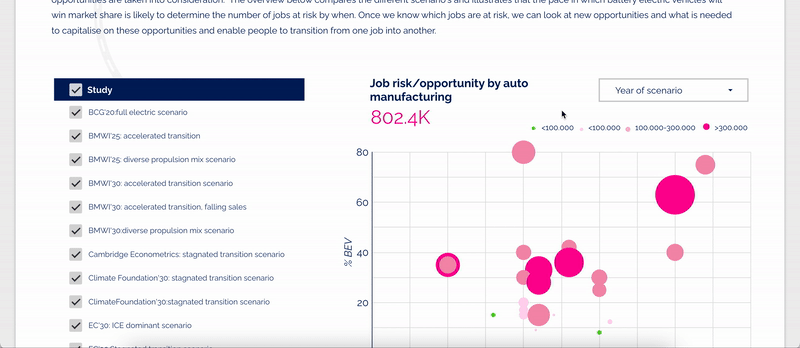Although a bit overused as a term, everybody is convinced that ‘workshops’ are the way to go if you want your team to come up with creative and innovative ideas, solve long-pending issues or build a roadmap for the coming period. A good workshop ends with actionable results, but we will discuss this in a separate blogpost.
Yet, there is still some doubt and hesitation when it comes to who needs to lead this exercise. Who is the best placed person to make this effort work? Can it be someone from your own team or would it be better to have this done by an external facilitator?
I will try to give my view – knowing that I am an external facilitator myself – as objectively as possible, and – giving away the conclusion upfront – try to convince you what’s the added value of an external facilitator for workshops.
Time & resources
Let’s start with the most important reason: time and resources.
Time is a scarce commodity in every company, and you need someone inside your organization that can work on this in a dedicated manner. A workshop needs to be ‘built’ if you really want it to work and have it achieve your goals and objectives. Such building of a workshop takes time and when it is something that is done on top of all the rest is almost never done right.
If you hire someone external to do this, you have a dedicated person working on this. Of course, you still need to contribute internal resources and time. You need to prepare the workshop together with the facilitator, mostly to define clear goals and validate the workshop structure. But this effort can be limited when you have a good facilitator that you are on the same page with.
Finally, an experienced facilitator has an arsenal of tools at their disposal: workshop formulas and setups, exercises, templates, workshop materials. All used and tested in real life. Coming up with all these by yourself is quite an endeavour.
Filters & objectivity
Reason number two and maybe as important as reason number one: filters, due to politics, silos and habits.
A very important reason why workshops don’t work well is when the facilitator is part of the same culture and experience of the participants. They are part of the company structure (and its silos), know about previous experiences and are subject to political sensitivities which may prevent them from asking the right and needed questions. This means that the question ‘Why’ is not posed often enough anymore. ‘Why do you do it this way?’ should be asked for everything but is often ignored because they think they know why it is done this way.
You need an independent experienced facilitator that is not aware of any political barriers, that can play ‘foolish’ and ask any question needed that may pinpoint very critical and painful areas but do this in such a manner that it does not leave any political minefield because they have no interest in changing the politics or being part of them.
What’s more, an experienced facilitator usually has worked in many different sectors, going from consumer and B2B products, services, industries… The challenges each of these sectors is facing might seem different at first sight but are in retrospect also very similar issues and can bring unexpected inspiration. An experienced facilitator brings all this knowledge about the way others solved these matters to the table.
Budget
A third important factor is the budget.
Of course, an external facilitator will not come and do this exercise for free, there is a cost associated with this, but the main advantage is that you know upfront what the cost will be, what the timing is, what the deliverables are and what you can do with this output by when.
When you do this internally, there is also a cost, although in most cases, this will be hidden and, true, easier to put into the budget than an external invoice, but still the cost is very much there.
But if you have someone dedicated working on this, this person is fully accountable to this workshop and its outcomes and that is worth some money, too.
Training
A final reason is training. Facilitating a workshop is a skill that needs to be learned. Our facilitators are thoroughly and constantly trained, following very practical, hands-on courses at prestigious institutes such as the Design Thinkers Academy and AJ&Smart to name only a few.
But they also have the real-world experience. Having facilitated numerous workshops in many different companies. They bring this experience to your workshop, to your advantage.
An added bonus is that they are also trained UX designers, meaning that in their questioning, they will go right through the heart of the question: how do I offer the best possible user experience to my customer.
As you can see by now, they can really build the perfect workshop for you, tailored to your needs and your team. It’s the best assurance to reach your goals and objectives.
Conclusion
And yes, as an external facilitator myself it may seem I’m not completely objective on this subject, but having worked for so many different companies, I’ve seen it all gone awry so many times and witnessed first-hand where it all went wrong. So, if I were to do this as an internal stakeholder, I would seriously consider an external facilitator. If you’re interested, let’s talk.




